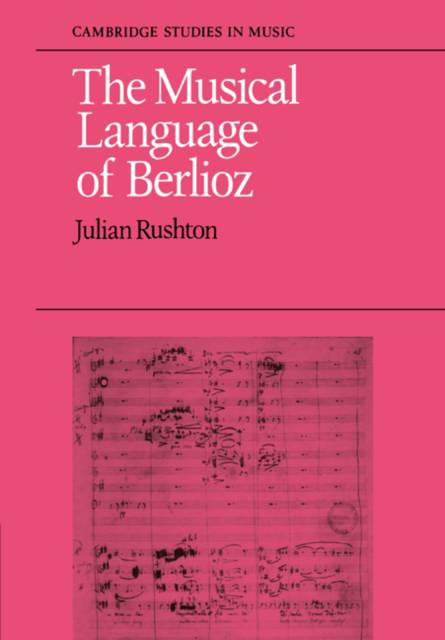
Door een staking bij bpost kan je online bestelling op dit moment iets langer onderweg zijn dan voorzien. Dringend iets nodig? Onze winkels ontvangen jou met open armen!
- Afhalen na 1 uur in een winkel met voorraad
- Gratis thuislevering in België vanaf € 30
- Ruim aanbod met 7 miljoen producten
Door een staking bij bpost kan je online bestelling op dit moment iets langer onderweg zijn dan voorzien. Dringend iets nodig? Onze winkels ontvangen jou met open armen!
- Afhalen na 1 uur in een winkel met voorraad
- Gratis thuislevering in België vanaf € 30
- Ruim aanbod met 7 miljoen producten
Zoeken
€ 91,95
+ 183 punten
Omschrijving
This book is an analytical and critical study of Berlioz's unique musical style. It does not undertake to analyse all his works, but rather to separate characteristic elements and observe them in action. Berlioz's writings and those of his critics are called upon to help focus the discussion. Part I includes material on the sources of Berlioz's idiosyncrasy and a discussion of fundamental pitch elements. Part II pursues this discussion into textural, contrapuntal and orchestral features, and considers melody and rhythm. Part III deals with whole musical forms, vocal and instrumental. The book includes copious musical illustration, much of it analytical reduction, and the expressive purpose of the features analysed is fully considered. The conclusion is that Berlioz's musical language is inescapably peculiar, though not necessarily inept; features which seem inexplicable in the light of compositional theory nearly always contribute to the musical and expressive exactness of communication.
Specificaties
Betrokkenen
- Auteur(s):
- Uitgeverij:
Inhoud
- Aantal bladzijden:
- 320
- Taal:
- Engels
- Reeks:
Eigenschappen
- Productcode (EAN):
- 9780521082143
- Verschijningsdatum:
- 18/09/2008
- Uitvoering:
- Paperback
- Formaat:
- Trade paperback (VS)
- Afmetingen:
- 170 mm x 244 mm
- Gewicht:
- 512 g

Alleen bij Standaard Boekhandel
+ 183 punten op je klantenkaart van Standaard Boekhandel
Beoordelingen
We publiceren alleen reviews die voldoen aan de voorwaarden voor reviews. Bekijk onze voorwaarden voor reviews.











